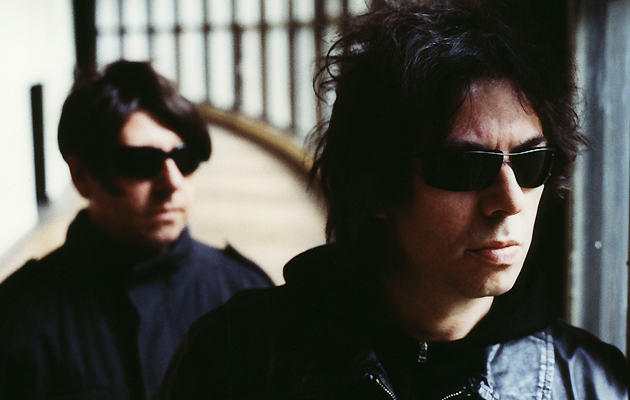Originally published in Uncut's August 2014 issue Order the latest issue of Uncut online and have it sent to your home! Ian McCulloch has always had a lofty opinion of Echo & The Bunnymen. “It felt like we were the best band in the world,” he says of the group’s early days. “It was my ...
Originally published in Uncut’s August 2014 issue
Order the latest issue of Uncut online and have it sent to your home!
Ian McCulloch has always had a lofty opinion of Echo & The Bunnymen. “It felt like we were the best band in the world,” he says of the group’s early days. “It was my dream, and I didn’t want to be in ‘the second best band in the world’…”
Across their first four albums, up to the undisputed high-point of 1984’s Ocean Rain, the Bunnymen – McCulloch, guitarist Will Sergeant, bassist Les Pattinson and drummer Pete De Freitas – created their own lush, string-driven sound completely at odds with most of their ’80s post-punk contemporaries, and wrote glowering, majestic songs like “The Killing Moon”, “The Cutter” and “The Back Of Love”, that still sound like bona fide classics today – even if the band don’t always agree who actually wrote them.
“It still is an adventure,” says McCulloch. “A lot of our new album feels like the early days to me.”
_____________________
Crocodiles
Korova, 1980
The spiky, classic debut – with drum machine ‘Echo’ making way for Pete De Freitas.
Ian McCulloch: In those days we all got on and [Bill] Drummond was almost like the fifth member of the Bunnymen. I can’t remember there being any arguments, not that it was very chilled for the first few days… Maybe it was because we were so young, but it was brilliant.
Will Sergeant: We didn’t know what we were doing, it all just fell into place in a weird way from the very first gig. I didn’t think, “this is what I’m going to do for the rest of my life”, but I knew it was better than working as a chef.
Les Pattinson: Iggy Pop had been at Rockfield studios the week before us, so we got all the stories about him chatting up all the chamber maids, and we all wanted to know which bog he’d shit on. Everything was new and I just couldn’t believe how much it cost, and how much time was wasted trying to get something we thought we already knew. It was really bizarre, the way certain members of the band wouldn’t get up until two in the afternoon…
Sergeant: I was amazed at how much [co-producer] Ian Broudie knew in the studio. Drummond and [Dave] Balfe were more “vibe merchants”.
McCulloch: The others used to go off to pubs or light bonfires while I’d be watching telly or singing my head off in the studio. I didn’t enjoy exploring the woods – I never had been one of those adventurous lads. By the end I was getting a bit of cabin fever. But it got fantastic reviews across the board. I never doubted us. I could see it was special. I felt destined to make great records.
_____________________
Heaven Up Here
Korova, 1981
Huw Jones is promoted from engineer to producer for the Bunnymen’s more expansive follow-up.
Sergeant: We loved Huw, he was a very mellow bloke, just stood there smoking a roll-up. Everything then had that big, horrible drum sound, the DX7 with that chiming bell sound, and we hated all that. We wanted them to be classic sounds, sounds nobody else could get. I played guitar with a pair of scissors at one point, and I kind of banned cymbals.
McCulloch: I used to do the night shift, and finish at about six or seven in the morning. Huw used to survive on two or three hours’ sleep and still be perky in the morning to do guitar overdubs and percussion.
Pattinson: With Heaven Up Here we felt a bit more confident, a bit more experimental. I love cross-harmonies, and parts where I play the same thing over and over again. Each bar doesn’t sound the same because Pete’s adding a little bit and I’m adding a little bit. Me, Will and Pete would go to these African music shops and buy marimbas, and come up with these rhythms we’d never heard before. It was all about not being scared to try things and think, ‘Well, this doesn’t sound like a Bunnymen record’, but it did, because it was the four of us.
Sergeant: I remember The Teardrop Explodes were rehearsing in The Mill up the road from Rockfield, and we were hanging out then. Someone gave us shotguns to play with…
McCulloch: It was like, ‘What are we doing!? We’re going to hit someone!’ I left the others to that, had one go and nearly broke my shoulder! The power out of those things was nuts.



